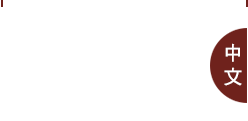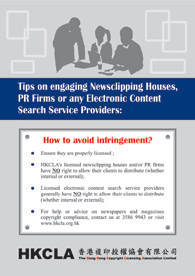1. What is copyright?
In general, copyright is a type of intellectual property right which subsists in a work as defined in the Copyright Ordinance (Cap 528, Laws of Hong Kong) (“the Ordinance”) or under common law. Copyright protects the expression of ideas in an original work, such as literary works in books, computer programmes, dramatic, musical or artistic works, sound recordings, films, broadcasts, cable programmes and the typographical arrangement of published editions as well as performers’ performance; copyright works made available on the Internet environment are also protected. The principal legislation on copyright in Hong Kong is the Copyright Ordinance (Cap.528, Laws of Hong Kong) while common law is also applicable for the interpretation of subsistence, ownership and duration of copyright, rights of copyright owner, infringing acts and remedies for infringement, etc.
The author of a work is the first owner of any copyright in it except for employee works, commissioned works and government copyright, etc. as set out in the Ordinance, whose rights are protected by the laws of Hong Kong without the requirement of registration. Copyright remains with the creator of the work until the copyright is transferred. Copyright is transmissible by assignment, testamentary disposition or by operation of law, as personal or moveable property. The copyright owner can grant licence for use of the copyright works with or without consideration.
2. How long does copyright last for?
The protection period varies according to the type of protected work. In general, the terms of protection in Hong Kong are as follows:
- For literary, dramatic, musical or artistic works, copyright lasts for the life of the known author plus 50 years from the end of the calendar year in which he/she died (different duration applies for unknown authorship, joint authorship and computer-generated works);
- For sound recordings, copyright expires 50 years from the end of the calendar year in which it was made or, if released during that period, 50 years from the end of the calendar year in which it is released;
- For films, copyright expires at the end of the period of 50 years from the end of the calendar year in which the death occurs of the last to die of the principal director, the author of the screenplay, the author of the dialogue, and the composer of music specially created for and used in the film (different duration applies for unknown identity of any of the said persons);
- For broadcast or cable programmes, copyright expires at the end of the period of 50 years from the end of the calendar year in which the broadcast was made or the programme was included in a cable programme service;
- For the typographical arrangement of a published edition, copyright expires 25 years from the end of the calendar year in which the edition was first published.
3. Why is copyright protection important?
Copyright protects the expression of an original idea. The efforts of copyright owners should be protected so as to preserve an environment where originality is encouraged and hard work can be rewarded. In return, the public benefits from the enjoying the original works.
The laws of copyrights in Hong Kong plays an important role in preserving Hong Kong as an international trading center, it protects and assures our investors a free and fair business environment.
4. What’s Copyright Law?
Copyright law aims to maintain a balance between the rights of copyright owners for rewards and the rights of society as a whole in the use of copyright works.
The Copyright Ordinance currently in force in Hong Kong has come into effect since 27 June 1997. Since then the Ordinance was subject to reviews and revisions from time to time and undergone significant changes since 2001. The latest amendments to the Copyright Ordinance in 2009 provides an even more comprehensive protection for recognized categories of copyright works, including those made available to the public on the Internet.
There are no formalities or official system required to obtain copyright protection for a copyright work in Hong Kong. Copyright works originated from or first published at other countries or jurisdictions can also enjoy the protection provided by the copyright law in Hong Kong. Through the application of many international copyright conventions in Hong Kong, your original work is also protected in most countries and territories in the world.
5. How are works protected?
- Civil Remedies
A copyright owner or the exclusive licensee can take civil legal action against any person who infringes his rights under the copyright law and claim for appropriate relief. In general, the copyright owner or its exclusive licensee owns an exclusive right in dealing with the copyright work such as to copy, reproduce or to distribute it to the public. The owner or exclusive licensee may seek all necessary relief against the infringer, such as an injunction to prevent further infringement, an order for delivery up of the infringing items, disclosure of information about the supply and/or dealings of the infringing items and an award for damages as well as costs of the civil legal action.
- Criminal Sanctions
The Customs and Excise Department is responsible for investigation and criminal prosecution against copyright infringement. It has extensive powers of search and seizure in the investigation of reported infringements, and has the power to confiscate suspected infringing copies whether or not a charge has been laid.
There are wide-ranging provisions in the law for criminal enforcement of copyright. Those who commit copyright piracy, such as making of or possession of infringing articles for trade or business, may be subject to a term of imprisonment of up to four years and a maximum fine of HK$50,000 per infringing article.
Importing or exporting pirated articles is a criminal offence. It is also an offence to be involved in copyright piracy outside Hong Kong for the purpose of importation into Hong Kong. Those who manufacture equipment for copyright piracy may also be liable to a term of imprisonment of up to eight years and a maximum fine of HK$500,000.
Dealing in parallel-imported copies of any copyright work (except computer software products), importing them for dealing, importing or possessing parallel-imported copies of movies, television dramas, musical sound recordings or musical visual recordings for playing or showing in public is a criminal offence during the 15 months commencing from the work's first publication anywhere in the world.
Making, importing, exporting or dealing in products for defeating technological copyright protection systems, or providing commercial services for enabling customers to defeat the same systems is a criminal offence. Any offender, upon conviction, is liable to a term of imprisonment of up to four years and a maximum fine of HK$500,000.
6. What are the exceptions to copyright?
To balance the rights of the owners and the society as a whole, there are exceptions in the law. A copyright work is infringed only if a substantial part thereof is taken. This is a matter of quality rather than quantity.
Subject to applicable conditions, fair dealing with a copyright work for the purposes of research and private study, criticism, review and news reporting of current events, education and copying by librarians, etc. are exceptions to infringement of copyright. Yet users should still be cautious about possible infringement. Photocopying an unreasonable amount of a book might constitute an infringement, for example.
The contents of this section are intended to provide general information on the subject matter and shall not be relied on or used as legal advice or for any other purpose. The Hong Kong Copyright Licensing Association Limited will not take responsibilities for errors or omissions in the contents, or for any consequences, direct or indirect, arising from such errors or omissions or from reliance thereon. You are advised to refer to the Copyright Ordinance (Cap 528, Laws of Hong Kong) or seek professional assistance for proper information and advice.











